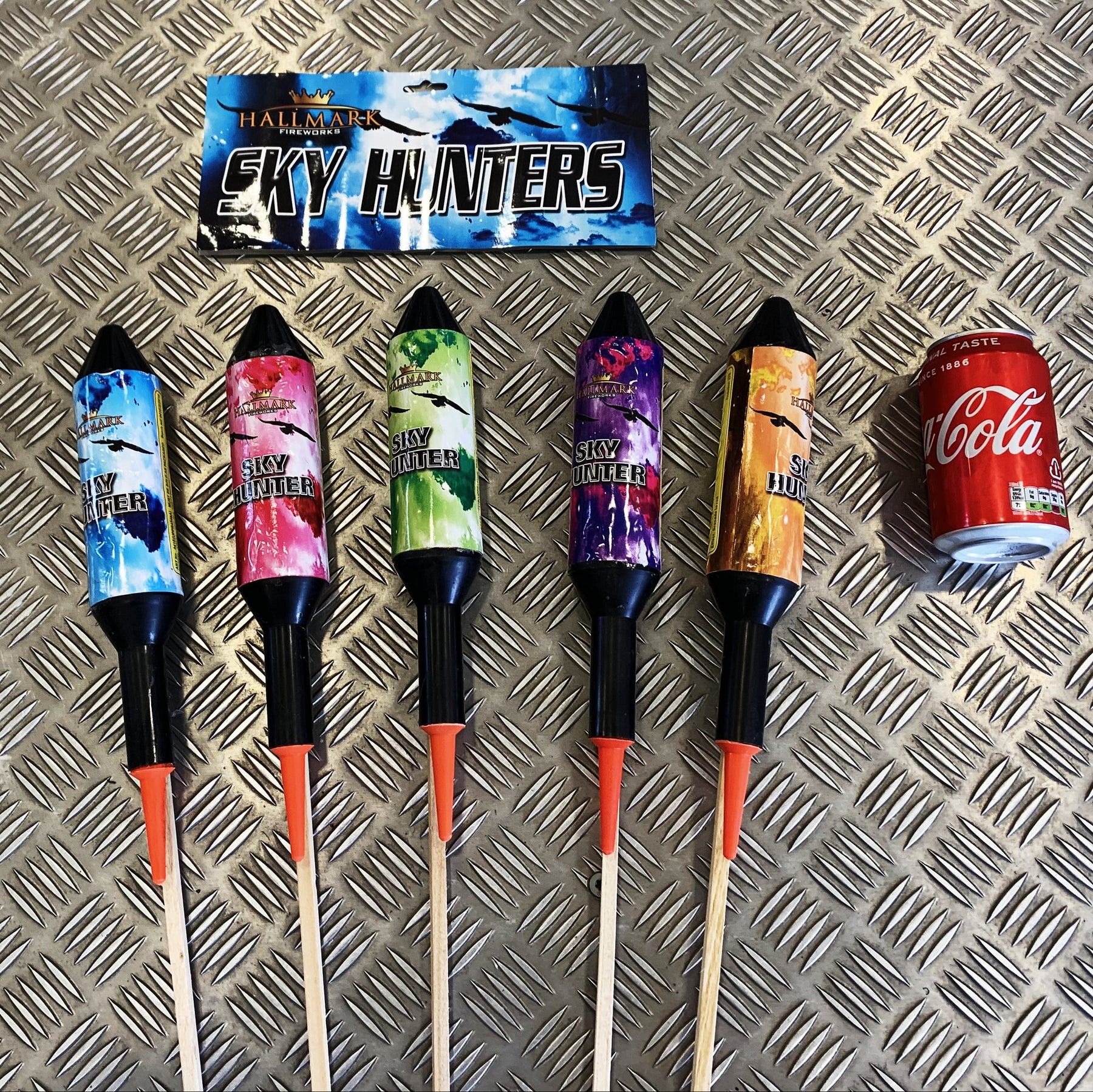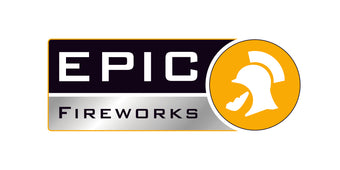
UK Fireworks: A buyers guide/Rockets
Part 2 - Rockets
Rockets are perhaps the single most exciting firework you can get. Putting a launching tube into the ground, dropping the rocket in, lighting the fuse and that fantastic few seconds after the fuse has burned and the motor has started to fizz when you really are not sure if it is going to rise or not, is it going to go straight up or not, that is the excitement that you can only get with rockets. Let's face it everyone (everyone male at least) looks at a rocket and thinks, wow, I have a bomb on a stick!
Rockets were invented very shortly after the roman candle - which is the basic ingredient for a fireworks barrage - and their evolution was swift, if unpredictable at times. Rocket technology has come on a long way and the effects we see now are a testament to centuries of development.
So enough about the past, what do we want to look for when buying a firework rocket?
Ask yourself the following questions:
- How big is the rocket?
- What effect does it contain?
- How high does it go?
- How much does it cost?
- Have I seen the Video?
The most important question here is, what effect does it contain? There is no point in going home with the biggest rocket in the shop if it gets into the sky and pffffs into nothingness. Watch the videos! Before buying any firework, rocket or otherwise, watch the videos, make your own mind up. When it comes to fireworks nothing matters other than the effect. Do not get hypnotised by bright colours and fancy packaging. The effect is everything.
Size - as any woman will tell you - does matter. When it comes to rockets this is still true up to a point. A rocket with a 55-inch stick is bound to impress more than a rocket with a 12-inch stick, most of the time. This said I have seen many rockets in my years as a pyrotechnician and often I have been stunned at the quality of smaller rockets. And thoroughly disappointed by the poor performance of so-called "daddy" rockets.
Let us look at why this is. Rockets consist of 3 main parts, the stick, the motor and the shell. The stick gives balance as the rocket rises, the motor gives the thrust to lift the rocket and the shell, well, the shell is what it's all about. The bang, the burst, the stars, the effect, call it what you like. It's all about the kaboom.
Rockets - like all fireworks in Britain - have a maximum amount of gunpowder allowed. The bigger the stick is, the heavier the rocket is, the more force required to lift it, the less gunpowder left for the effect. Result: a large rocket with no great effect. So smaller rockets are better? No. In order to give a large effect the rocket has to be a certain distance off the ground for safety reasons. So the smallest rockets, though still very good for their size, are not going to be the best in the shop. The ideal solution is somewhere in between. Go for a big one, but not too big. Unless, of course, if you have seen the video and you know it is a great effect. Confused? Read on.
Cost is a consideration when buying firework rockets. Rockets are notoriously bad value for money. You only get one shot, one effect and one bang for your money. Whereas in a barrage firework you get several, sometimes hundreds of shots and effects. So what's the advantage of a rocket?
Height. Because the rocket goes much higher than a shot from a barrage, the size of the effect can be much greater giving a larger more impressive performance. This is one of the reasons that many pros like to finish their displays with a couple of very big rockets. This fills the sky nicely and lets the audience know that the show is over.
The main message to take away from this is: you don't know what a rocket is going to do till you light it yourself or watch a video of it. I strongly suggest that before buying any firework, you take the time to watch the video and compare the effects. Do not instantly buy the biggest rocket in the shop presuming it will be the best. And finally, use rockets sparingly. They are a fantastic addition to any display and a must for the finale but not essential throughout the whole show.
Firework rockets and explosives are separated into categories in the UK. 1.4G and 1.3G – 1.3G Fireworks contain flash powder and have powerful, loud and large effects. These are harder to come by as there are limited suppliers of 1.3G fireworks in the UK but it is well worth seeking them out as 1.4G Fireworks, generally, are poor quality in comparison. 1.4G rockets do not contain flash powder in any great quantity (less than 5%) and do not bang so much as pop. A Common effect from 1.4G rockets is "falling leaves" as it requires little or no flash powder.
Great Rule of Thumb: 1.3G = Good, 1.4G = Not so Good
Rocket volleys: Rocket volleys are a relatively new invention in the UK fireworks market. Similar to how a firework barrage fuses many Roman candles together. A rocket volley consists of a number of rockets (often 25) fused together so as you light one fuse, the whole lot goes up together. These are great fun and perfect to throw up with your finale. Remember though you are getting a few seconds of entertainment for at least £30 - £40 so they are very expensive but very nice.
Always play safe with rockets, follow the instructions carefully and have fun. To watch videos of our favourite rockets click the link and try to ignore the bad language. Epic Fireworks Favourite Rockets
